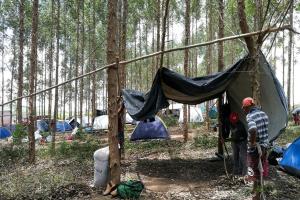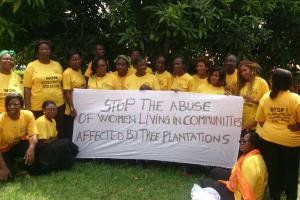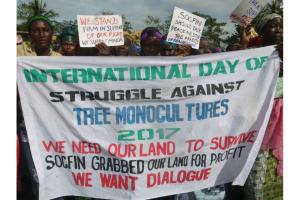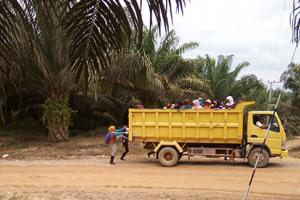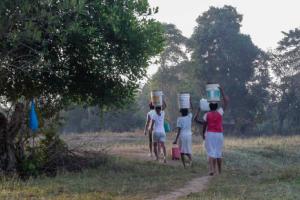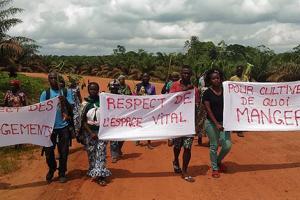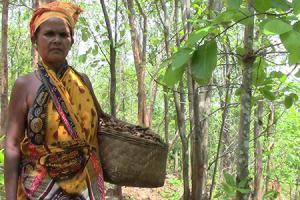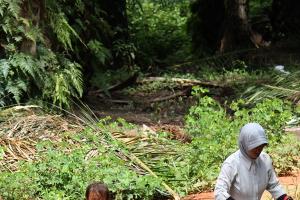Finnish activists protest against Stora Enso and Veracel
Large-Scale Tree Plantations
Industrial tree plantations are large-scale, intensively managed, even-aged monocultures, involving vast areas of fertile land under the control of plantation companies. Management of plantations involves the use of huge amounts of water as well as agrochemicals—which harm humans, and plants and animals in the plantations and surrounding areas.
Publications
9 March 2018
"12 Replies to 12 Lies about Oil Palm Monoculture Plantations" has been updated. The publication now includes a chapter about how oil palm companies lie when they say they respect women's rights.
Action alerts
7 March 2018
International Press release. March 7, 2018.
Women demand that oil palm companies stop violence and give back community land
Bulletin articles
7 March 2018
This bulletin, on International Women's Day, is a call for direct and radical solidarity with those women who suffer, resist, organize and mobilize against the daily violence and abuse that industrial plantations cause.
Bulletin articles
7 March 2018
From rapes, forced body searches and searches of private spaces, to the risk of losing their lives: this article calls on us not to be accomplices to the violence women living around tree plantations in Cameroon suffer.
Bulletin articles
7 March 2018
The expansion of oil palm plantations in Indonesia has turned women into landless food buyers and cheap labour, with no adequate safety and health protection, for the plantation companies. (Available in Indonesian).
Bulletin articles
7 March 2018
Contamination of water sources, deplorable working conditions, and sexual blackmail in exchange for work, are some of the kinds of violence against women living in and around oil palm plantations in Guatemala and Colombia.
Bulletin articles
7 March 2018
A woman from the village of Mbonjo 1, Cameroon, which has witnessed the impact of industrial palm oil plantations and the constant presence of the military, calls for international solidarity and protection of right to life and freedom.
Bulletin articles
7 March 2018
India’s programme to compensate for the destruction of forests for development projects is routinely setting up monoculture tree plantations on community commons. Women, who are mostly affected, are at the centre of its resistance.
Bulletin articles
7 March 2018
The voices and stories of forest-dependent women are often rejected, unheard or silenced, which makes it easier for companies to grab community land. But what happens when they start to raise their voices?
Bulletin articles
7 March 2018
Women suffer many types of violence committed by oil palm plantations companies’ employers, security forces, police and military, which subsequently reinforce patriarchy and their roles and relations within society in general. (Available in Indonesian).
Bulletin articles
7 March 2018
The organization and sexual division of labor and job insecurity in single crop activities affect the health of female workers and territorial changes derived from this model of production directly affect women.
